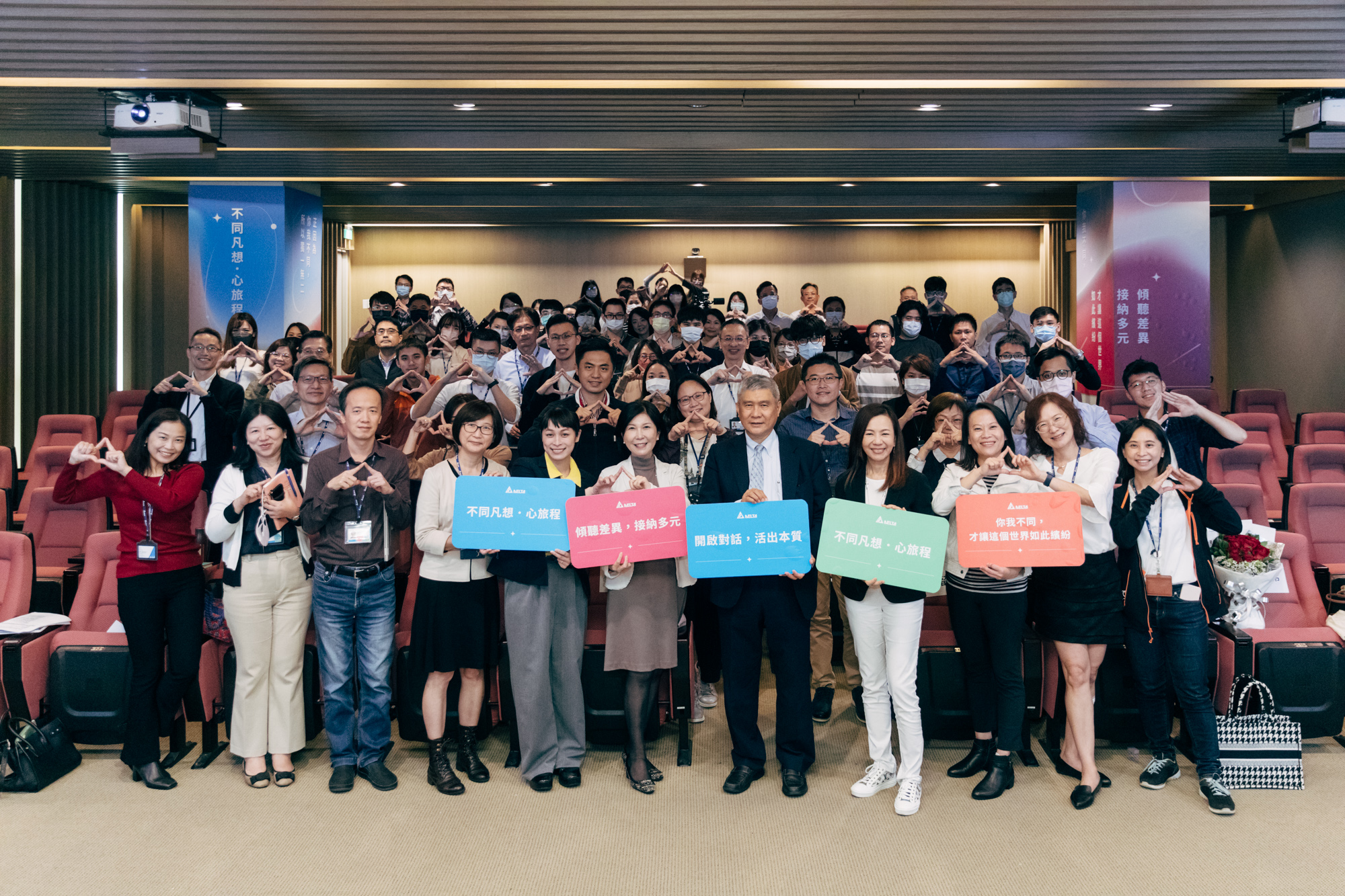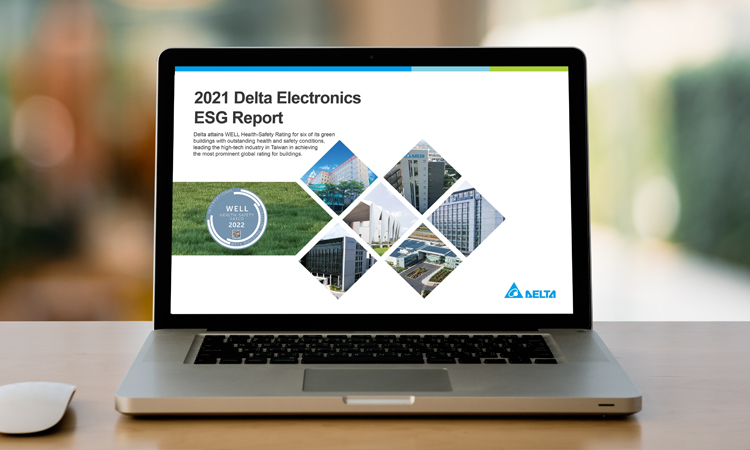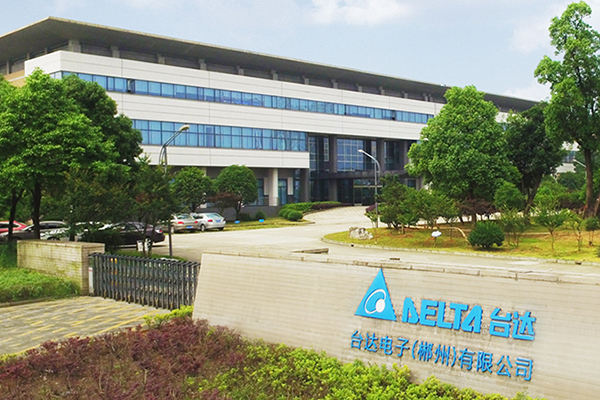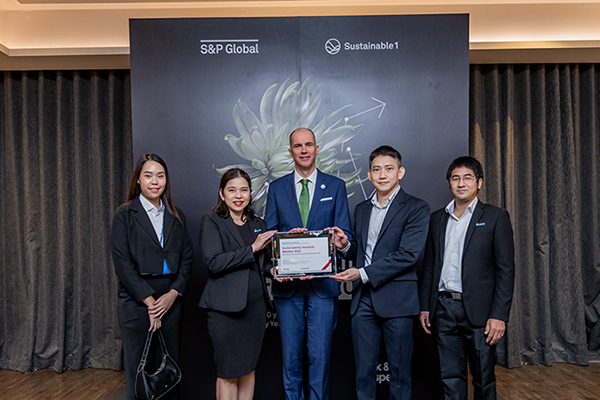These questions related to Delta's sustainable development are all included in the stakeholder survey questionnaire distributed by Delta to over a thousand important stakeholders [1] this year. The internal and external respondents who received the questionnaire jointly evaluated the impact of different sustainability issues on Delta's business operations and provided suggestions to promote Delta's growth as a truly sustainable enterprise.

The stakeholder survey of Delta was completed in early 2023. Among the six categories of stakeholders, Delta's employees had the highest response rate, accounting for 62% of the total responses.
The annual stakeholder survey questionnaire has been updated to include a "sustainable development impact" evaluation to examine external impacts.
In order to effectively respond to important sustainability issues that attract attention from various sectors, Delta's Sustainability Development Department compiles over 20 sustainability issues based on domestic and international sustainability regulations or standards, stakeholder feedback, and the company's business strategy, taking into account ESG internal and external risks and opportunities. The department then uses the annual stakeholder survey results to identify, analyze, and confirm the sustainability issues that are significant to Delta, in order to formulate long-term sustainability goals.
In early 2023, Delta conducted a stakeholder survey and received nearly 1,000 valid responses. Among the six categories of stakeholders, Delta employees were the most enthusiastic, accounting for 62% of the total responses, followed by suppliers and customers. The survey also found that employees attach great importance to business ethics and environmental issues, demonstrating that Delta's sustainability philosophy has been deeply embedded in its corporate culture.

Corporate Sustainability Department team of the company held an online stakeholder survey briefing for internal colleagues.
Compared with previous years, the survey and subsequent identification adopted an updated methodology. In addition to continuing to look at Delta from an external perspective in terms of "stakeholder concern" and "operational impact," the survey added "sustainability impact" as the third dimension based on the new GRI standards. Using 16 impact scenarios and 166 questions, it deeply examined the positive and negative impact of Delta's business activities on the external environment, people, and society from an internal perspective. Impacts that have already occurred or may occur in the future will be taken into consideration in Delta's decision-making process and disclosed in the annual sustainability report [2]. For example, if a specific electronic product is identified as difficult to reuse and ultimately becomes electronic waste, polluting the environment and endangering health, it will be considered a negative impact, and Delta will plan to introduce recyclable materials or modular design to reduce the negative impact. Conversely, if the impact is positive, Delta will further link up and down the value chain to achieve a circular economy and expand its positive impact.
Board approves 16 major sustainability issues to accelerate strategy implementation towards long-term goals
After analyzing and evaluating the results of this year's stakeholder survey, the Sustainable Committee, external experts, and senior executives have selected 16 major sustainability issues [3] through discussions and confirmation. Compared to previous years, the two new issues added are "diversity and inclusion" and "risk management," reflecting the key trends of integrating diverse talents in the post-pandemic era and grasping climate risks and opportunities for businesses. Additionally, "customer relationship management," "innovative products and services," "climate strategy," "net-zero commitment and carbon management," "green products," "occupational safety and health," and "talent development" are also among the 9 major sustainability issues that are highly valued across three discernment dimensions.
As major sustainability issues are crucial references for Delta's business strategy and the main framework for information disclosure in its annual sustainability report, they are highly valued by the highest governance body, the Board of Directors. Therefore, even before international standards and external assessments [4] required it, Delta has reported its selected major sustainability issues to the Board of Directors each year. After thorough discussions, the Board of Directors makes decisions and further promotes strategies, management policies, and long-term goals within the organization. Delta also continuously tracks its progress, dynamically adjusts its sustainability management practices, and accelerates the implementation and communication of its sustainability goals in daily operations.
Engaging all stakeholders in ESG communication through education and training to deepen the impact of sustainability issues
Delta's entire team has long been communicating relevant sustainability issues with different stakeholders in their respective professional fields. Through activities such as visiting corporate shareholders and holding external corporate briefings, Delta not only explains the company's financial and operational information but also shares the recent developments and future goals of the company's ESG, and feedbacks investors' opinions and expectations to the company's management. By organizing large physical exhibitions or press conferences, Delta communicates with clients/potential clients and media closely to promote future low-carbon smart applications of green product solutions. Delta's management team and senior executives also participate in various sustainable summit speeches to share Delta's climate strategy goals and achievements with the industry and the public in collaboration with international advocacy. To the international community, Delta has hosted peripheral meetings at the COP United Nations Climate Change Conference for many years, exchanging experiences in energy-saving and carbon reduction and relevant solutions for low-carbon cities. At COP27, Delta also held its first Action Advocacy Symposium with international experts to explore coral restoration-related issues.
To further enhance employees' knowledge and ability to communicate critical sustainability issues with stakeholders, Delta's Global Career Development Committee recently added ESG as the 12th core career track, promoting internal ESG education and training courses that incorporate ESG overviews, energy management, carbon management, and circular economy into course topics to assist in strengthening Delta's stakeholder communication effectiveness and helping to actualize sustainable development.

Delta held a panel discussion on action initiatives at COP27, where international experts shared and explored issues related to coral restoration.
[Note 1] Delta is committed to sustainable management and has long valued communication with stakeholders. According to the AA1000 SES stakeholder engagement standard, Delta has defined six important stakeholder categories, including customers, investors, suppliers, employees, media, and communities (such as research institutions and non-profit organizations).
[Note 2] Delta publishes an annual sustainability report to share its latest environmental, social, and governance (ESG) performance and strategic goals with various stakeholders. The content is verified by a third-party organization and is an important basis for Delta's communication with stakeholders on ESG issues.
[Note 3] Delta has identified 16 major sustainability issues, including innovation in products and services, customer relationship management, sustainable supply chain management, risk management, climate strategy, net-zero commitment and carbon management, green products, energy management, water resource management, waste management, talent attraction and retention, diversity and inclusion, community involvement, talent development, occupational safety and health, and human rights and labor relations.
[Note 4] The new version of the GRI guidelines requires the board of directors, as the highest governance unit, to oversee the process and review and approve the significant topics. In the 2022 Corporate Governance Evaluation by the Financial Supervisory Commission, the board of directors' oversight of sustainable development (including significant principles) will be included as a scoring item.



















